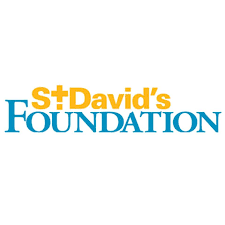Philanthropic leadership is largely a White enterprise. In a survey incorporating data between 2009-2019, the Center for Effective Philanthropy found that 75 percent of responding Executive Directors identified as White, nine percent as Black, and only six percent as Hispanic/Latino.(1) In their 2019 annual survey of foundation staffing trends, the Council of Foundations found only one percent of foundation CEO and nine percent of program officer positions were held by Latinos.(2)
The resulting impact on aspiring Latino leaders is profound:
- Three out of four Latinos expend energy repressing parts of their personas in the workplace, downplaying who they are, modifying their appearance, body language, communication style and their leadership presence;
- Two thirds do not feel free to share their ideas and opinions, are not confident their ideas are heard and valued and do not feel welcome and wanted;
- Finally, 53 percent of Latinas and 44 percent of Latinos said that executive presence at their company is defined as conforming to traditionally White male standards.(3)

St. David’s Foundation set out to more deeply understand how the development of a fellowship program for Latino/as interested in philanthropy could create and cultivate a pipeline of future leaders who reflect the values and cultures of the communities they serve. The Foundation started by interviewing successful leaders of color throughout the U.S., as well as conducting an extensive literature review. Our goal was to discover how those leaders created the social and cultural capital to move within White models of leadership while simultaneously–and this is the tricky part–maintaining their cultural heritage and bringing their full selves to the table.
With this in mind, St. David’s Foundation ideated on the following leadership development concept that has the potential to create a two-year entry-level fellows program, with the following highlights:
- In a partnership with like-minded foundations in Central Texas, the program would provide full-time employment to a cohort of fellows who work for their respective foundations and come together one day per week to develop their leadership skills.
- Open to recent college graduates or those with four-years hands-on experience in community service or activism, candidates would apply by submitting personal essays explaining their future interests, goals and aspirations with regard to implementing equitable systems change impacting the health issues facing the community they came from.
- Once selected, fellows would be able to sharpen their leadership skills under the guidance of leadership development professionals.
- A cohort coach would enable the fellows to establish deliberate, conscious strategies to negotiate inclusion into elite leadership roles, as well as to develop approaches to understand and stay true to their culture and lived experiences. By developing this multicultural competence–the capacity to negotiate both minority and majority cultures–the fellows would learn to lead in ways that resonate with the communities they serve while also connecting with the dominant ways of working within the majority context.
- Under the coach’s guidance, the fellows also develop strategies to build and sustain their resilience, as people of color often feel marginalized and tokenized and must struggle with the stigma of “being the only one like me in the room.”(4)(5)

The fellows program, then, would create value in three ways:
- First, it would develop the fellows’ leadership skills through the lens of their culture and heritage.
- Second, the program would position those most impacted by health and social issues to lead equitable change in the conditions affecting the social determinants of health.
- Finally, the program offers the sponsoring foundations or community partners the opportunity to rethink their tasks, mission and strategy by being exposed to a routine flow of new ideas and networks.
Over time, the fellows would move through leadership positions within philanthropies, impacting both the organization they work for and the communities those organizations seek to serve. By establishing and executing a fellows program that develops Latino leaders in philanthropy, foundations create a pipeline of future leaders that will literally change the face of philanthropy. This concept differs from existing leadership opportunities because it is longer term, includes a comprehensive placement and rotation across various departments, and would include a capstone whereby fellows apply for grant funding and complete a collaborative project in their second year.
As we share these ideas with the GEO community, and continue to explore the potential for this type of leadership program, we invite thoughts from our grantmaking colleagues. Specifically,
- What would it take for a foundation or community partner to invest in programs that foster a pipeline of diverse leaders?
- What would it take for a foundation or community partner to fully support a fellow and encourage them to bring their full self to the work?
- Is it realistic to expect that a foundation would accept fellows who have community organizing expertise or professional/lived experiences in lieu of a college degree?
- What’s missing from the model presented?
Authors: Lynn Wills, Denise Herrera, Angelica Ferrandino
Please reach out to Becky Pastner, VP of Evaluation & Strategic Learning (bpastner@stdavidsfoundation.org) if you would like to share your reactions or ideas.
- Buteau, Ellie. “Reflecting on Leadership Diversity in Today’s Nonprofit Sector.” The Center for Effective Philanthropy (9/5/2019). https://cep.org/reflecting-on-leadership-diversity-in-todays-nonprofit-sector/. Accessed 6/16/2020.
- Diaz, Eusebio. “Where are the Latinos in philanthropy?” (2020). https://www.peakgrantmaking.org/insights/where-are-the-latinos-in-philanthropy/. Accessed 7/30/2020.
- Allwood, Noni and Sherbin, Laura. “Latinos at work, unleashing the power of culture” (2016). Center for Talent Innovation. https://www.exponentialtalent.com/uploads/1/6/8/4/16841408/cti_latinos_at_work_2016.pdf. Accessed 8/20/2020.
- Ortega-Wiley, Rita. Health and Nutrition Manager for Foundation Communities. Interview 5/12/2020.
- Conde-Brooks, Patricia E. "Recognizing La Cultura: The Experience of Cultural Scripts in Latina Leadership." (2020).

